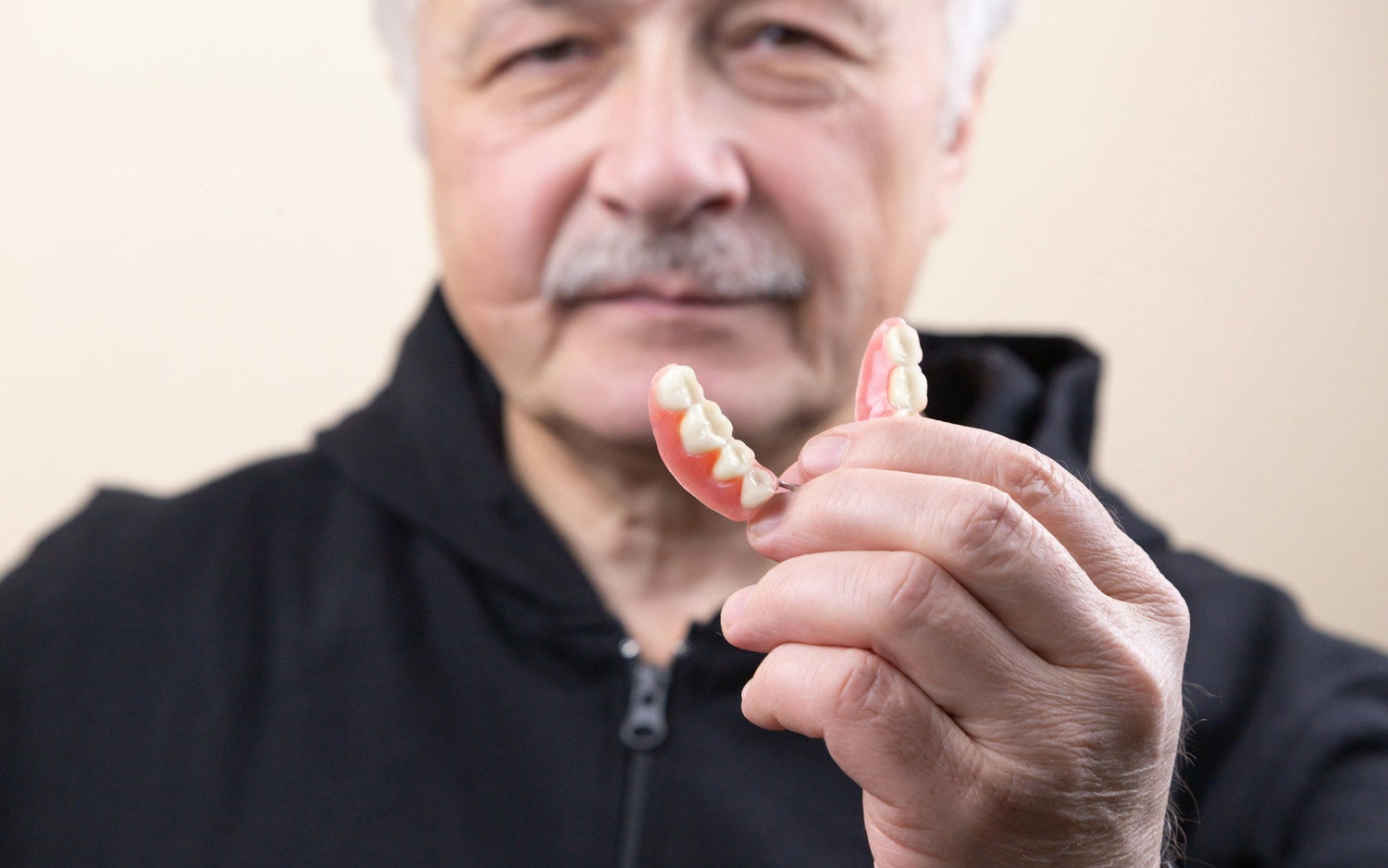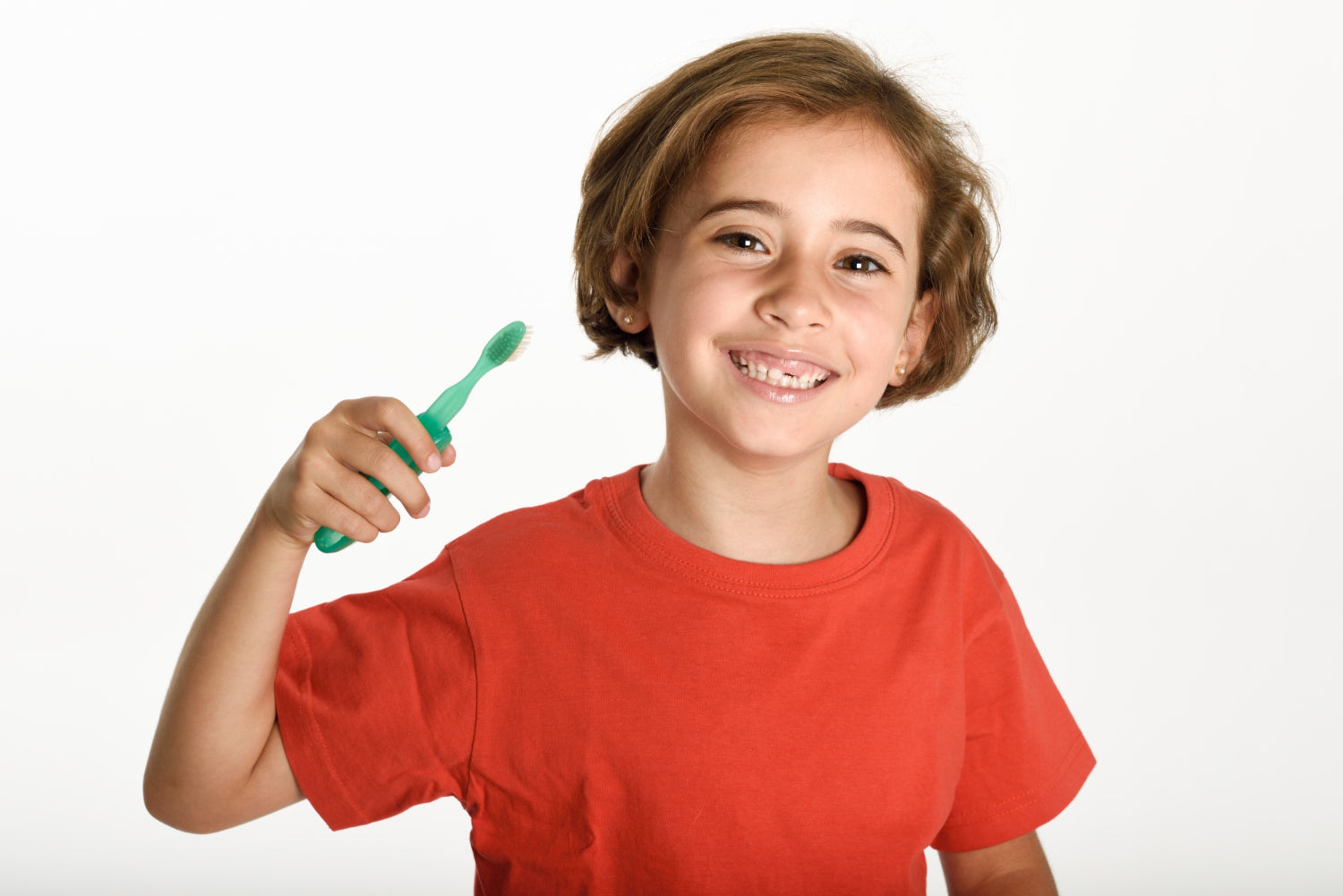Colloquially, dentures, bridges or even implants are often referred to as third teeth. The dentist speaks of removable or fixed dentures.
Crowns, fixed bridges and implants are fixed dentures. Ceramic is often used as the material, which closely resembles the appearance of natural teeth. When caring for your mouth, you should make no distinction between your natural teeth and fixed dentures. On the contrary! Both the fixed denture and the adjacent teeth require particularly careful care, mmm for example, to prevent inflammation.
Fixed dentures: Soft bristles are important
A soft toothbrush is suitable for cleaning. In the demirdental range you will find brush heads with bristles that are 25 percent softer than the standard model. As with real teeth, brush fixed dentures at least twice a day and also use dental floss or interdental brushes. For implants, fluffy dental floss is recommended due to the larger interdental spaces. This is placed mmm the implant and gently moved up and down. Food debris is reliably removed in this way.
Removable dentures: Careful maintenance to prevent inflammation and disease
With removable dentures, a distinction is made between full and partial dentures. In the case of partial dentures (or removable bridges), the artificial teeth are attached to the healthy teeth on the right and left using a bracket. The adjacent natural teeth must be particularly well cared for because the edge of the bridge is susceptible to caries.
In the case of a full denture, the artificial teeth are embedded in a gum-colored plastic carrier that is held in place by negative pressure in the upper or lower jaw.
As with real teeth, plaque and tartar can build up on artificial teeth. On the one hand, this looks unkempt and can lead to bad breath. On the other hand, it can lead to gum disease and inflammation of the mucous membranes. In partial dentures, food residues can also get stuck on the clasps and become a breeding ground for harmful bacteria. If the bacterial pathogens enter the bloodstream, they can cause diabetes or diseases of the cardiovascular system. With careful oral hygiene, you are therefore always making a positive contribution to your general health.
Both partial and full dentures are removed from the mouth for cleaning. It is recommended to loosen the denture over a sink filled with water or covered with a soft towel. If the denture slips out of your hands, it will fall softly and be less likely to be damaged.
Removable dentures: Do not use toothpaste.
Clean artificial teeth with a soft toothbrush, preferably a special denture brush, and liquid soap or dishwashing liquid. Brushing with toothpaste would be counterproductive, as it contains abrasive elements, i.e. emery particles, which roughen and damage the acrylic. Bacteria, viruses and fungi can then easily colonize and cause irritation and inflammation. After cleaning, rinse the denture thoroughly with running water. This mechanical cleaning is recommended after every meal. After cleaning, the denture can be placed in a solution of chlorhexidine or denture cleaning tablets for five minutes once a day for disinfection and then rinsed with water.
Once a month, you can additionally immerse your denture in a vinegar bath for a maximum of two hours. Tartar can be efficiently dissolved in a solution of one-third white vinegar and two-thirds water.




Leave a comment
All comments are moderated before being published.
This site is protected by hCaptcha and the hCaptcha Privacy Policy and Terms of Service apply.